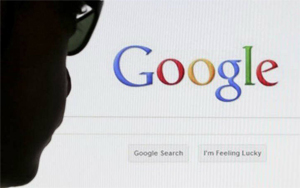 European Union competition regulators are preparing to issue an additional layer of formal charges as soon as late July against Alphabet Inc.’s Google over its behavior with its shopping service, according to people familiar with the matter.
European Union competition regulators are preparing to issue an additional layer of formal charges as soon as late July against Alphabet Inc.’s Google over its behavior with its shopping service, according to people familiar with the matter.
The so-called supplementary statement of objections will likely sharpen the EU’s previous accusations that Google uses its dominance in search to favor its own service in the shopping market, according to one of the people familiar with the matter. That could shape the case to create possible precedents for how the U.S. technology company also operates in other domains, including with its local or travel services.
The European Commission, the bloc’s antitrust body, declined to comment. Google didn’t immediately respond to requests for comment.
The commission first filed formal charges against Google in April 2015 for favoring its comparison-shopping service in search results.
EU antitrust chief Margrethe Vestager then said she continues to have concerns that Google is also abusing its dominance with those other search services.
The clarification to the shopping charges won’t necessarily mean a cascade of new EU cases against Google. But the EU could decide, after a negative decision in the shopping case, to open new investigations into the company’s behavior with its other specialized search services if Google doesn’t alter its behavior in the other services as well.
The commission has asked rival companies to permit disclosure to Google of confidential information they submitted to the EU, such as loss of traffic caused by Google’s behavior, which would bolster the regulator’s shopping case. The requests are a typical sign that the EU is gearing up to issue new charges.
A supplementary statement of objections allows the commission to address arguments the company made in its reply to the first set of formal charges and are commonly issued in more complex probes to ensure that any final decision can pass legal muster when it is inevitably challenged in court.
In the shopping case, Google has argued that the EU erred in its analysis of the fast-changing online-shopping business and failed to account for the fast growth of companies such as Amazon.com Inc. and eBay Inc.
The EU’s supplementary statement of objections comes as it is also expected to file formal charges against the technology company over its advertising services, piling more pressure on Google after already hitting the company with formal charges for its conduct with its Android mobile operating system. Google is expected to respond to the Android charges in the coming months.
The expected additional charge sheet disappoints some rival companies who formally complained to the commission about Google and who were hoping for a swift decision from the EU that would require Google to change its behavior more imminently. The new statement of objections would prolong the process by some more months because Google would then have extra time to respond to the commission’s concerns.
(Published by The Wall Street Journal - July 8, 2016)